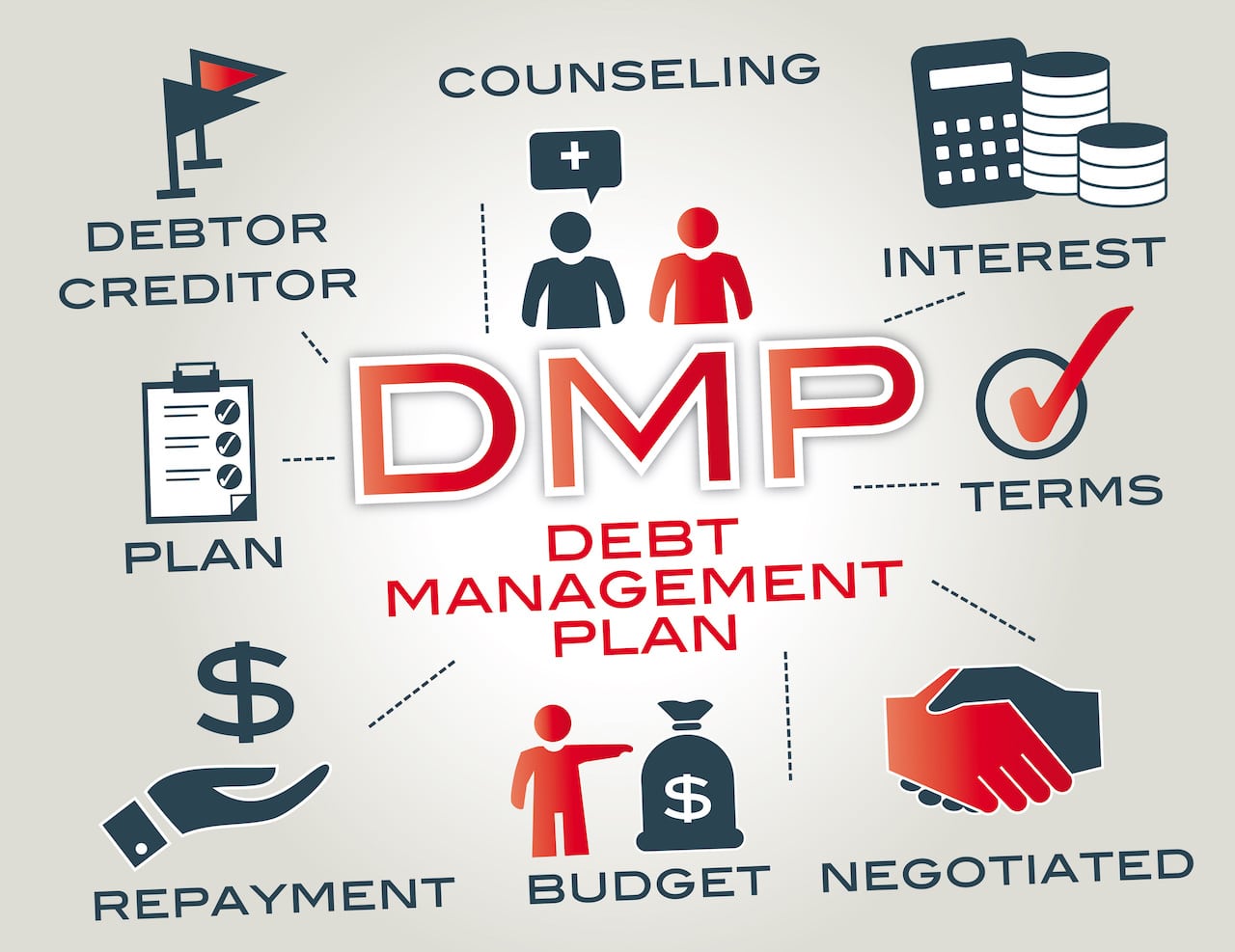Comprehensive Debt Management Plan Services for Effective Financial Healing
Comprehensive Debt Management Plan Services for Effective Financial Healing
Blog Article
Professional Tips and Methods for Carrying Out a Successful Financial Obligation Management Strategy
When it comes to navigating the complexities of financial obligation monitoring, having a well-balanced plan is important for attaining financial stability. From examining your current monetary standing to bargaining with creditors, each step plays a crucial duty in shaping an effective debt monitoring strategy.
Evaluating Your Existing Financial Circumstance
Before starting a financial obligation monitoring plan, it is important to thoroughly assess your existing monetary standing. Recognizing your economic scenario is the foundational step in the direction of efficiently managing and reducing your financial obligation. Begin by putting together a comprehensive list of all your financial debts, consisting of impressive balances, rate of interest, and minimum regular monthly settlements. This will give a clear summary of the extent of your financial responsibilities. Additionally, examine your earnings resources and regular monthly costs to establish your non reusable income readily available for financial debt repayment.

Developing a Realistic Budget Plan
Comprehending your current economic situation lays the foundation for establishing a realistic budget that lines up with your financial obligation monitoring objectives and economic capabilities. When producing a budget plan, it's critical to accurately track your earnings, expenditures, and debt obligations. Start by providing all incomes, consisting of incomes, perks, and any extra incomes. Next off, outline your repaired costs such as rental fee or home loan repayments, utilities, insurance, and car loan settlements. Variable expenditures like groceries, amusement, and transport should also be made up. By categorizing your expenditures, you can identify areas where you may require to cut back to liberate funds for financial obligation payment.

Prioritizing and Dealing With Financial Debts
To successfully reclaim control of your finances and job towards monetary stability, prioritizing and tackling your financial obligations is a vital action in your financial debt management strategy. Identify high-interest debts that are costing you the most cash and focus on paying them off.
After identifying your high-interest debts, think about utilizing methods like the debt snowball or debt avalanche method to pay them off systematically. The financial debt snowball approach involves repaying the tiniest financial obligations initially, while the debt avalanche technique prioritizes debts with the highest possible rate of interest. Pick the technique that straightens ideal with your economic objectives and motivates you to maintain making development.
In addition, take into consideration discussing with lenders for lower rates of interest or setting up a layaway plan if you're having a hard time to fulfill your current responsibilities. Seeking help from a credit score therapist or financial consultant can likewise give useful insights and guidance on just how to properly tackle your financial obligations - debt management plan services. By prioritizing and addressing your debts tactically, you can pave the means towards a debt-free future and enhanced financial health
Discussing With Creditors
When engaging in debt management, discussing with financial institutions is an essential step in the direction of discovering equally advantageous services for financial debt repayment. Prior to starting arrangements, it is important to have a clear understanding of your economic circumstance, including your earnings, expenditures, and the complete amount of debt owed.

Building Healthy And Balanced Economic Behaviors
Including regular budgeting methods is essential for cultivating healthy and balanced economic habits. Budgeting enables people to track their revenue and expenses, allowing them to make enlightened choices regarding their economic concerns. Setting specific monetary goals, such as conserving for emergencies or retirement, can offer a clear roadmap for taking care of money effectively.
An additional trick aspect of building healthy economic behaviors is living within one's ways. This entails costs less than what is earned and avoiding unnecessary financial debt. Adopting a penny-wise state of mind and differentiating between requirements and desires can aid people make more prudent costs options.
Regularly assessing financial statements and keeping an eye on credit report reports are important habits that promote economic recognition and duty. By remaining educated regarding their financial standing, people can determine potential problems early and take positive actions to address them.
In addition, establishing a financial savings behavior, also with little amounts, can add considerably to long-term financial protection. Saving regularly not just builds a monetary pillow for unanticipated expenditures however likewise fosters a sense of discipline and duty towards finance. By regularly exercising these habits, people can lay a strong foundation for a steady financial future.
Final Thought
To conclude, carrying out an effective debt administration strategy requires a comprehensive analysis of one's financial situation, the great site development of a reasonable spending plan, focusing on and tackling financial obligations, bargaining with financial institutions, and structure healthy and balanced financial practices (debt management plan services). By complying with these professional ideas and click reference approaches, people can take control of their financial resources and job in the direction of attaining financial security and liberty from financial debt
Recognizing your present monetary circumstance lays the groundwork for developing a reasonable budget that lines up with your debt monitoring goals and financial capacities.To effectively reclaim control of your financial resources and work towards financial security, focusing on and tackling your debts is a critical step in your financial debt monitoring strategy.After recognizing your high-interest financial obligations, consider using strategies like the financial debt snowball or financial debt avalanche method to pay them off methodically. The financial debt snowball approach entails paying off the smallest financial obligations first, while the financial debt avalanche approach focuses on financial obligations with the highest passion prices.When engaging in financial obligation management, bargaining with lenders is an essential step towards locating equally beneficial remedies for financial debt repayment.
Report this page